Board Spotlight: Anne Shadle Goes the Distance

BFS Clinician and Advisory Board member
BFS says one of the qualities of being an Eleven is “a willingness to continually raise your personal bar of excellence.” Anne Shadle, Ph.D., is such an individual, and her efforts to improve herself and set the highest goals in all aspects of her life has put her at the top of our list for BFS advisory board members.
Shadle entered her first cross-country competition in the eighth grade at the urging of her friends. Shadle was a multiple-sport athlete and dancer in junior high school, but soon discovered that she loved distance running more, describing it as her “release from the world.” Her father, Steve Shadle, the longtime track and field coach at South Sioux City High School, recognized her daughter’s passion. The father-daughter team was a good one as she became a six-time state champion in both track and cross-country. Such talent earned her an athletic scholarship in 2001 from the University of Nebraska, a track and field powerhouse.
In 2005, her senior year with the Huskers, she was the surprise winner of the NCAA National Championships in the indoor mile in the 1500 meters, finishing with a time of 4:38:23. She followed that with the rare accomplishment of winning the outdoor championships in the same event, proving that her indoor victory was no fluke. Her time of 4:11.47 was nearly two seconds faster than the runner-up and more than 15 seconds faster than her personal best as a junior. She also was reached a national level in the steeplechase.”Her best time in this event was 10:32.
Shadle finished her athletic career with the Huskers as a two-time All-American, a three-time Big 12 Champion, a four-time Big 12 All-Academy Team member, and an eight-time All Big 12 Conference Team member. She broke numerous school records, and still holds three of them.
After finishing her collegiate career at the University of Nebraska, Reebok picked up Shadle to run for them professionally for three years. She moved across the county to train in Washington, DC with a professional training group led by Coach Juli Benson. Shadle’s discipline and talent enabled her to compete in the 2008 Olympic Trials.
After completing a master’s degree in counseling psychology, she went on to earn her Ph.D. in health education with an emphasis in sports psychology. Her research focus was developing an understanding of the psycho-emotional challenges, preparations, and responses of Olympic champions. In other words, she wanted to learn why the best athletes win. As an educator at the University of Missouri, Shadle taught an undergraduate course called, “Psychological Perspectives of Sport,” taught a masters-level course in applied sport psychology, and co-taught a masters-level sports psychology course. She also developed a gender issue in sport course for the college’s online master’s degree program in Positive Coaching.
It was while attending South Sioux City High School in South Sioux City, Nebraska, that Shadle learned about the BFS Total Program. “A BFS clinician came to our school, set up our weight room, and taught our coaching staff how to implement the program,” says Shadle. “I liked the BFS program and thought it helped me stay healthy and set up a strong structural foundation for my future athletic career.
Distance runners often have reservations about lifting weights, but this wasn’t the case with Shadle’s high school coaches. “The message I got from my coaches was that performance is all about the strength-to-weight ratio. It was important to be structurally strong and fast.” She says that not only did the BFS program fulfill her goals of being a faster and stronger runner, but also helped keep her injury-free. “Strength training for a distance runner is much more than just strengthening bones,” says Shadle.
“Research has shown that athletes who strength train develop stronger tendons and ligaments. Strength training can help balance hormones and if done properly can also improve recovery,” says Shadle. “A lot of track coaches try to increase the volume of their distance runners to improve performance, but the athletes can’t handle the volume of miles and end up getting hurt. BFS makes you structurally strong so you can handle the appropriate amount of volume of training.”
After college Shadle was reintroduced to BFS through Dr. Peter Gorman, a pioneer in concussion research who developed the BFS Balance Training Protocols. As she goes through the program she didn’t realize how much detail goes into it. “The attention to detail on what equipment to use, how to use it, and how to structure workouts – every aspect of the program is extremely detailed. I was also impressed with their long history of success in the industry.”
Shadle says her message to young people is that a key to success in any sport is to become a well-rounded athlete, which requires participating in a strength and conditioning program that addresses all aspects of athletic fitness. “With a foundation of building your general athleticism, you then have the physical tools to become even better at whatever sport you choose."
Anne Shadle is a true eleven. Read more of her contributions to BFS in the folowing article:
Capacity: Physical and Neurological
